With more than 500 medal events, the Tokyo Paralympics will offer more drama than anyone can keep track of. Here are some key narratives involving US competitors with limb difference.
SWEEP TALKERS
At the 2016 Paralympics in Rio, the US took all three podium spots in the women’s triathlon for classification PT2. Allysa Seely, Hailey Danz, and Melissa Stockwell won gold, silver, and bronze, respectively. There’s a chance all three could medal in Tokyo; they’re currently ranked #1, #2, and #5 in the world. Where else might the US monopolize the podium in Tokyo?
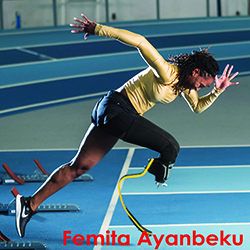
Men’s 200m Sprint (T64)
Two of the top three spots in the world rankings are held by Americans Jarryd Wallace and Jonathan Gore. Another US amputee, Trenten Merrill, also ranks in the world top 10.
Women’s 100m Sprint (T64)
US women occupy three of the top seven spots in the world: Femita Ayanbeku at #2, Beatriz Hatz at #4, and Sydney Barta at #7. Ayanbeku set a new US record in the 100 at the National Trials, and Hatz finished just .02 seconds behind.
TOP DOGS
As of late June, when Amplitude went to press, these US amputees were ranked #1 in the world for their event and classification. (For a primer on classifications, see the “Guide to the Games” page on Amplitude’s Paralympics website.)
Swimming
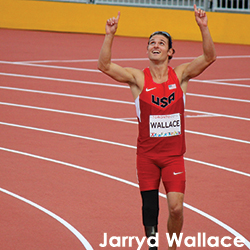
- Matthew Torres, 400m freestyle (S8)
- Jessica Long, 100m butterfly (S8)
- Morgan Stickney, 400m freestyle (S8)
- Mikaela Jenkins, 100m butterfly (S10)
Track and Field
- Jarryd Wallace, 200m (T64)
- Sam Grewe, high jump (T63)
- Jeremy Campbell, discus (F64)
- Noelle Lambert, 200m (T63)
- Christy Gardner, javelin (F57)
RECORD HOLDERS
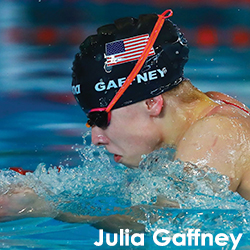
Swimming
- Jessica Long, 200m butterfly (S8)
- Jessica Long, 1500m freestyle (S8)
- Julia Gaffney, 100m backstroke (S7)
Track and Field
- Sam Grewe, high jump (T63)
- Josh Cinnamo, shotput (F46)
DUEL IN THE POOL
US teammates Jessica Long and Morgan Stickney are on a collision course in two swimming events, the 100m and 400m freestyle races for classification S8. Long holds the world’s #2 ranking in both events; Stickney is ranked 1st in the 400m and 3rd in the 100m.
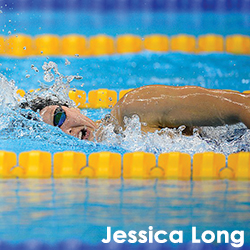
While both are bilateral amputees, their stories couldn’t be more different. Long, one of the most decorated US Paralympians in history, was born with limb difference and won her first Paralympic medals as a teenager. At the same age, Stickney was an able-bodied competitor with Olympic aspirations. Vascular disease interrupted her training and led to below-knee amputation of her left leg in 2018 (when she was 20 years old) and, 18 months later, her right leg.
Now 23, Stickney will be competing in her first Paralympics. Long, meanwhile, is appearing in her fifth Games and trying to add to a trophy case that already houses 13 gold medals and 23 medals overall.
UNFINISHED BUSINESS
Matt Stutzman is one of the greatest archers ever, able-bodied or disabled. His shot from 230 yards in 2015 stands as the longest bull’s-eye in history. Last month, in the national qualifying competition, he posted the highest score of all time in a para archery round, notching 1398 points out of a possible 1440.
But Stutzman has never won a Paralympic gold medal, despite two agonizingly close calls. At London in 2012 he dominated the competition until his gold-medal showdown against Finnish archer Jere Forsberg. After falling behind early, he had a chance to tie the match in the final set. Under intense pressure, Stutzman posted a perfect score of 30—but Forsberg equaled the feat, protecting his lead and claiming the gold.
In 2016 at Rio, Stutzman again cruised through the qualifying rounds, and in the second elimination round he posted an outstanding score of 141. That figure would have beaten every competitor left in the field except one: His opponent, Brazil’s Andrey Muniz de Castro, put up 142 and knocked Stutzman out.
He doesn’t have to win gold to deserve a place in the sport’s pantheon of all-time greats. But Stutzman surely wants to lay past demons to rest.
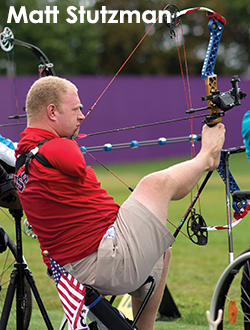
CLOSING THE DEAL
All the amputees listed below finished just off the podium at the 2016 Paralympics in Rio. Can they bring medals home from Tokyo?
4th-place Finishers
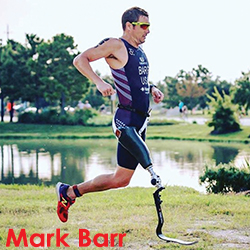
- Trenten Merrill, long jump
- Mark Barr, triathlon
- Freddie de los Santos, cycling
5th-place Finishers
- Blake Haxton, rowing
- Jarryd Wallace, 100m sprint
- Nick Rogers, 400m sprint
- Taleah Williams, long jump
SLUMP BUSTERS
It’s been 20 years since Team USA won a Paralympic medal in powerlifting. The year the sport debuted, in 1984, American lifters took home three golds, and they piled up nearly a dozen more medals before the turn of the century. But since the 2000 games, nothing. The hopes of ending the dry spell in Tokyo rest with Jake Schrom, a left-leg amputee who’s had a strong year so far in international competition. Schrom barely missed getting an automatic invitation to the Games, but he still has hopes of receiving a discretionary bid.
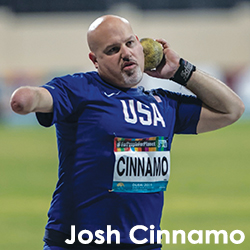
It has been even longer since the United States won a gold medal in the shot put. The last American podium-topper was Arnold Astrada, who took gold at Atlanta in 1996. Now comes Josh Cinnamo, a congenital right-arm amputee who won gold (and set a world record) in the shot put at the 2019 World Championships. Cinnamo has since slipped to 3rd in the world rankings, but he’s gathering steam, with strong showings at the Desert Challenge Games in May and the National Trials in June. If he peaks at the right time, Cinnamo has a clear shot at putting the US back into the gold column.



